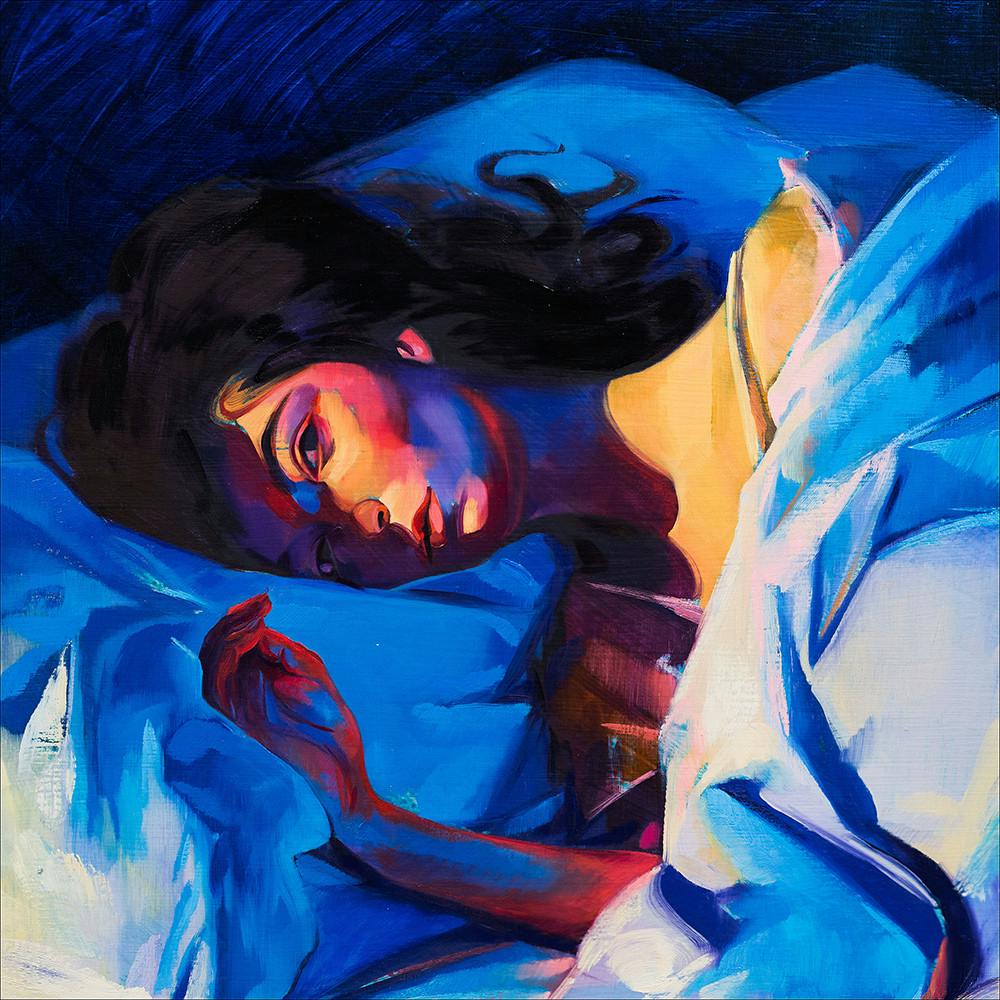by Ryan Fine
A follow-up to Lorde’s Pure Heroine has been one of the most widely anticipated pop records worldwide for the last couple years, and understandably so. While clumsy at certain points (“You buy me orange juice”), Ella Yelich-O’Connor’s first album as Lorde showed an incredible amount of promise for a musician still in her teens. Four years later, she has teamed up with Jack Antonoff of Fun and Bleachers to create an album that is noticeably more straightforward in its pop format. Yet despite its increased structural conformity, Melodrama takes advantage of plenty of conceptual and sonic experimentation in its eleven songs, with the final product adding up to one of the most varied and consistent pop records this side of 2010.
Pop with a dash of salt
A couple of days before the release of this album, when the world thought it had heard everything it needed to whet its appetite, Lorde released one of her strangest singles so far, “Sober”. “Sober” is certainly a dance song, but it is a bit of an off-kilter one. It throws offbeat percussive noise and synth-y brass detail randomly into the mix and dares its listeners to dance to it anyway. Like most of the pop-leaning songs on this album, there's quite a bit of unexpected space debris here to throw off her impersonators, or better yet, to challenge her fans.
Take the closest thing this album has to an epic, the EDM-infused “Hard Feelings/Loveless”. This song is in two parts and six minutes long, which is gargantuan by Lorde’s standards. After the relatively standard first part, the encore seemingly comes out of nowhere and at first feels like a straight-up dance floor instrumental. The vocals come in eventually and feel petty in nature, and the refrain echoes it, saying “Guess you wanna rip my heart out / Guess you wanna skip my calls now / Well guess what? I like that”. With this song, Lorde moves into the anger phase of grief in a way that feels almost poisonous.
There are a few spots where the experimentation doesn’t pay off as much as it could have, namely the two reprise tracks and “The Louvre”. Though the latter contains one of the most interesting soundscapes on the record, it feels like it skips forward when it should be much smoother, and contains the line “They’ll hang us in the Louvre / Down the back, but who cares, still the Louvre”. Whatever she meant by this was probably a nice sentiment, but didn’t quite land on these ears. The sequel tracks, particularly the reprise of “Liability,” could have served as nice interlude tracks, but didn’t add anything necessary to the story arc and ended up feeling a little bit filler-ish.
A painting of many colors
Although
I quite enjoyed “Green Light” when it dropped back in March, I lamented that we would have to wait until the release of the album to see if Lorde would expand the current world of pop music to the extent that she did on
Pure Heroine. A week later, she proved me wrong with the release of “Liability”, a ballad featuring only vocals and piano. It immediately cemented its place as one of her strongest songs lyrically and one of her more unique songs musically, bearing similarities to the sound of Conor Oberst’s recent solo album
Ruminations. Even more surprising is that there are other points on this album where Lorde expands into
more unique territory, creating a few moments that sound like no one else on the planet.
The best song on the album, and honestly, easily Lorde’s best song to date, is the hysterical, threatening tearjerker “Writer in the Dark”. This song’s verses trudge along with occasional piano notes and lyrics that detail Lorde looking back on the end of a relationship (one that she is clearly not over). After repeating the line “Bet you rue the day you kissed a writer in the dark” several times, the chorus enters in full swing. In this instant, her voice becomes almost ghostly, expertly cutting through her range and lashing out at her former lover as though she is about to cry right there in the recording studio. And that’s not even to mention the line “I’ll love you ‘til you call the cops on me”, which is a magically emotional, freshly heart-skewering moment every time she sings it.
After she finishes throwing bricks at houses, she calms down with the more introspective “Supercut”. She is no longer angry but reflective, replaying the best moments in her mind in a much more peaceful way. She still has regrets, but there is now the feeling that one day the titular melodrama will fade and she will learn from her mistakes. Finally, the infectious closing track “Perfect Places” shows Lorde accepting that life will never be perfect and embracing how screwed-up the world and its inhabitants can really be.
An auditory coming-of-age story
When Beyoncé released her sprawling and diverse forgiveness-via-revenge album
Lemonade last year, it was deservedly ranked by many publications as one of the best albums of 2016. That album pulled out all the stops with its massive long-form visual album aspect, but perhaps even more importantly, it paved the way for concept albums to return to the mainstream in a way they hadn’t since the ‘70s.
Melodrama, perhaps coincidentally, follows closely behind
Lemonade and solidifies that album-length pop storytelling isn’t just a fad. The issues that Lorde battles on this record are decidedly more juvenile, but that is intentional. She doesn’t try to make herself sound older as a star like Adele might, nor does she make it feel like her woes are less important just because she’s young.
On this album, Lorde seems to be going through a breakup, same as thousands of young people around the world. It’s not a new feeling or anything that hasn’t been written about before. But where countless grown adults would shrug it off and say, “I’ve been there before, you’ll get over it”, Lorde sings with the authority of someone still going through it. Her wounds are still fresh; she knows she will be happy again, but she’s smart enough to realize that in order to return to happiness, first she’s going to need to let out all of her sadness. And
that is the true meaning of melodrama.
Top tracks:
“Sober”
“Liability”
“Writer in the Dark”
“Perfect Places”
Recommended if you like:
Charli XCX
Conor Oberst / Bright Eyes
The Naked and Famous
All images from
Anyarena


















